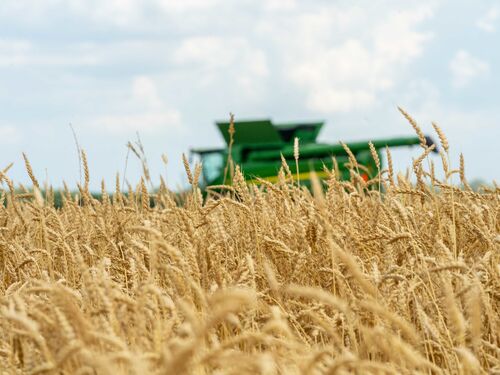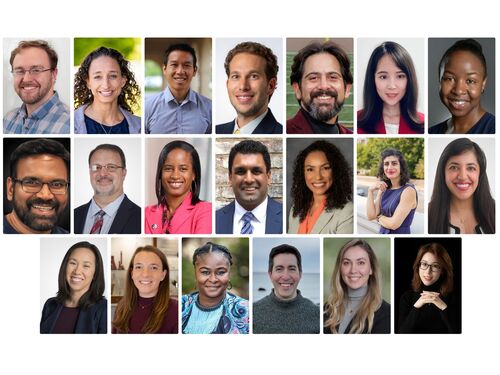Gulf Research Program Awards Eight Early-Career Research Fellows in Environmental Protection and Stewardship
News Release
By Stephanie Miceli
Last update September 28, 2021
WASHINGTON — Eight scientists have been selected for the Gulf Research Program’s Environmental Protection and Stewardship track of the 2021 Early-Career Research Fellowship (ECRF), announced the Gulf Research Program (GRP) of the National Academies of Sciences, Engineering, and Medicine today. During the two-year program, starting this month, fellows will pursue research that advances understanding of the changing ecosystem of the Gulf of Mexico and its U.S. coastal zones.
The Gulf is home to several ecosystems, including estuaries, oyster reefs, beaches and dunes, mangroves, and offshore shoals and banks. These ecosystems are instrumental to the socio-economic and cultural life of the region, providing benefits such as food, clean air and water, recreational opportunities and tourism, and raw materials.
However, these ecosystems will continue to shift with climate change, urbanization, and increased demand for food, water, and energy. For example, climate change may influence the sustainability of the water supply for ecosystems, which will have implications for the Gulf region’s residents and marine life. There is a critical need to predict and anticipate these changes to allocate natural resources in an equitable way, while protecting the environment.
The ECRF Fellows will investigate specific issues related to the Gulf’s changing ecosystems, with the goal of producing research that informs decisions that enhance environmental protection and stewardship. Their research might consider how different ecosystems interact with one another; identify critical thresholds that, if met, may reduce or eliminate ecosystem services; and guide stakeholders in weighing trade-offs among the various ecosystem services to make better-informed decisions.
The ECRF award is not attached to a specific project, which allows fellows to explore bold, untested research ideas that they might not otherwise be able to pursue. All fellows are investigators, faculty members, clinician scientists, or scientific team leads at colleges, universities, and research institutions. Each fellow will receive a $76,000 financial award, mentoring support, and a built-in community of current and past cohorts.
“Research that enhances environmental protection and stewardship requires both multidisciplinary thinking and the ability to build strong relationships with decision-makers. These exceptional fellows embody those qualities through their perseverance, creativity, and inventiveness,” said Karena Mary Mothershed, senior program manager for the GRP’s Board on Gulf Education and Engagement. “One of the most unique aspects of the ECRF is that it supports people, not projects — and we’re excited to be a part of our fellows’ continued success and professional growth.”
The incoming class of fellows is actively working on research projects related to ecosystem changes, including:
- Characterizing and quantifying the types of microplastics and understanding how they get into the ocean;
- Understanding the interactions between water and coastal ecosystems, as well as the trade-offs between water infrastructure and environmental health; and
- Developing ocean modeling tools to visualize risks to coral reef ecosystems in the Gulf of Mexico and extreme rainfall along the Texas coast.
The eight fellowship recipients are:
Mauricio Arias
Assistant Professor, Department of Civil and Environmental Engineering
University of South Florida
Sylvia Dee
Assistant Professor, Department of Earth, Environmental, and Planetary Sciences
Rice University
Jeseth Delgado Vela
Assistant Professor, Department of Civil and Environmental Engineering
Howard University
Lauren Fuess
Assistant Professor, Department of Biology
Texas State University
Brandi Kiel Reese
Associate Professor, Department of Marine Sciences
University of South Alabama
Yina Liu
Assistant Professor, Department of Oceanography
Texas A&M University
Robert Miller
Assistant Professor, Department of Civil Engineering
University of Louisiana at Lafayette
Ebenezer Nyadjro
Associate Research Professor, Northern Gulf Institute and Department of Geosciences
Mississippi State University
The Environmental Protection and Stewardship track is one of three ECRF tracks. The other two tracks are Human Health and Community Resilience, and Offshore Energy Safety. Last year, the GRP introduced the three-track system to align the fellowship with its program areas, generate more targeted research that benefits the Gulf, and create a more tailored educational experience for fellows.
To learn more about the Gulf Research Program’s Early-Career Research Fellowships, visit nationalacademies.org/our-work/early-career-research-fellowship.
The National Academies’ Gulf Research Program is an independent, science-based program founded in 2013 as part of legal settlements with the companies involved in the 2010 Deepwater Horizon disaster. It seeks to enhance offshore energy system safety and protect human health and the environment by catalyzing advances in science, practice, and capacity to generate long-term benefits for the Gulf of Mexico region and the nation. The program has $500 million for use over 30 years to fund grants, fellowships, and other activities in the areas of research and development, education and training, and monitoring and synthesis. Visit nationalacademies.org/gulf/gulf-research-program to learn more.
The National Academies of Sciences, Engineering, and Medicine are private, nonprofit institutions that provide independent, objective analysis and advice to the nation to solve complex problems and inform public policy decisions related to science, technology, and medicine. They operate under an 1863 congressional charter to the National Academy of Sciences, signed by President Lincoln.
Contact:
Stephanie Miceli, Media Relations Officer
Office of News and Public Information
202-334-2138; e-mail news@nas.edu
More like this
Discover
Events
Right Now & Next Up
Stay in the loop with can’t-miss sessions, live events, and activities happening over the next two days.
NAS Building Guided Tours Available!
Participate in a one-hour guided tour of the historic National Academy of Sciences building, highlighting its distinctive architecture, renowned artwork, and the intersection of art, science, and culture.



